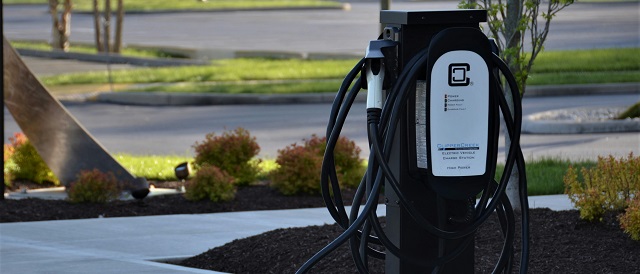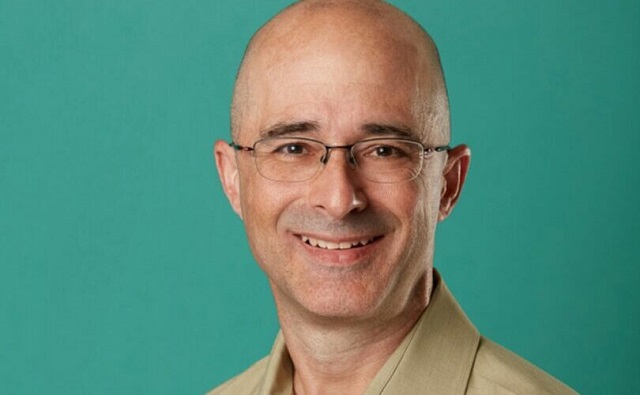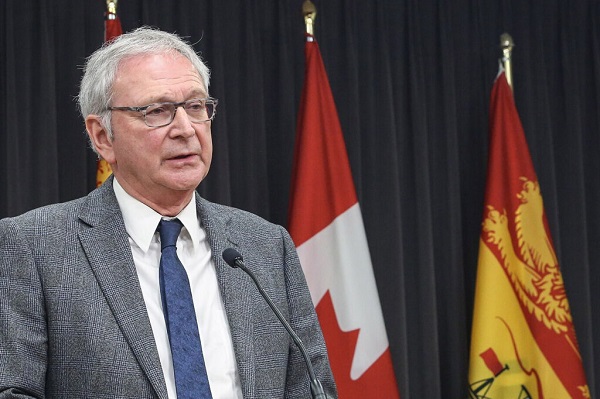MAiD
Official data shows euthanasia deaths in Canada rose significantly in 2023
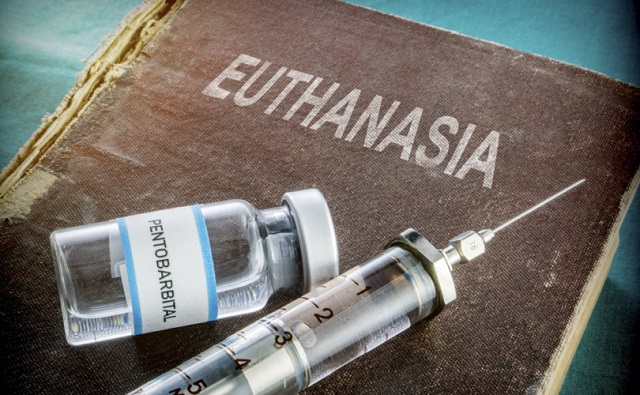
From LifeSiteNews
Medical Assistance in Dying (MAiD) increased 42% in 2023 in Quebec alone.
Deaths of Canadians by state-approved euthanasia have risen sharply in most provinces according to recent data, with approximately 16,000 people dying in 2023 alone, a significant increase from 2022 and an “out of control” rate, the nation’s leading anti-euthanasia advocacy group warned.
Official MAiD data from Ontario, Quebec, and Alberta shows the shocking level of deaths. In 2022, there were 13,241 Canadians who died by MAiD.
According to data from the Quebec Commission on End-of-Life Care’s eighth annual report, 5,211 people died by MAiD from April 1, 2022, to March 31, 2023, which is a large increase from 3,663 in the previous reporting period.
Alex Schadenberg, executive director of the Euthanasia Prevention Coalition (EPC), wrote in a recent blog that he predicts that 60,000 Canadians have died by MAiD since the deadly practice was legalized in 2016, with the rate increasing every year.
“Euthanasia is out of control in Canada,” Schadenberg said.
The EPC noted that deaths in Quebec from MAiD increased 42% in 2023, accounting for 6.8% of all deaths in the province. The report also shows that from April 1 to June 30, 2023, the number of MAiD deaths in the province went up 24%, which the EPC noted is “a slower pace of growth, but substantial considering the massive number of euthanasia deaths.”
The EPC also reflected that “Shockingly, 15% of those who died by euthanasia in Quebec were not terminally ill.”
MAiD data from Ontario released late last year shows there were 4,641 deaths in 2023, an 18% increase from 3,924 in 2022.
Data from Alberta shows that since June 2016 there have been 3,914 reported deaths by MAiD. However, 977 were in 2023, which is an 18% increase from 836 in 2022, or 594 in 2021.
Most MAiD deaths in Canada are done by a “doctor or nurse injecting a person, usually upon request, with a lethal poison cocktail,” the EPC noted.
Assisted suicide, the EPC says, is much less common and “is done by a doctor or nurse prescribing a person, usually upon request, a lethal poison cocktail that the person would take themselves.”
Last week, notably after pushback from pro-life, medical, and mental health groups as well as most of Canada’s provinces, the federal government under Prime Minister Justin Trudeau delayed its planned expansion of euthanasia to those suffering solely from mental illness to 2027.
Canadian Health Minister Mark Holland and Justice Minister Arif Virani announced the delay but said the government is still fully committed to expanding MAiD.
The delay was welcomed by the Euthanasia Prevention Coalition, but Schadenberg told LifeSiteNews that euthanasia “should be scrapped altogether.”
“We will be active in the next election reminding voters of the Members of Parliament who voted against Bill C-314 last fall, a bill that would have scrapped euthanasia for mental illness,” Schadenberg said.
Campaign Life Coalition (CLC) said that Canadians need “compassionate care, not killing,” and has urged Trudeau’s federal government to permanently scrap, not just delay, its planned expansion of euthanasia to those suffering from mental illness.
The Conservative Party of Canada (CPC) under leader Pierre Poilievre is supportive of the pause but wants the expansion of MAiD to be dropped altogether.
The CPC has opposed the expansion of MAiD, but recent attempts to stop the grim procedure, such as through Bill C-314, have failed.
The current delay is the second time the expansion has been put on hold.
Originally set to go into effect in March 2023, pressure from the same groups led the Liberals under Trudeau to delay Bill C-39.
The original delay in expanding MAiD until 2024 also came after numerous public scandals, including the surfacing of reports that Canadian veterans were being offered the fatal procedure by workers at Veterans Affairs Canada (VAC).
MAiD
Even Canadian leftists are starting to recognize the ‘dystopian’ nature of MAiD
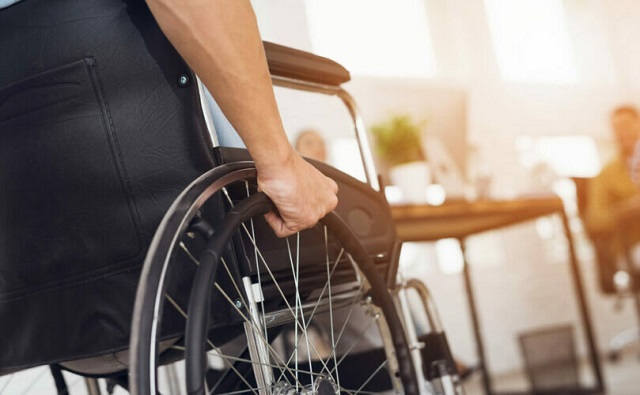
From LifeSiteNews
Euthanasia based on poverty or disability is rarely based on personal choice and autonomy, it is horrifying, it is profane, it is the outcome of a failed social welfare system, and it is indefensible.
David Moscrop wrote an excellent article that was published by Jacobin Magazine on May 2, 2024. Jacobin is an ideologically left magazine, which is concerned about Canada killing people with disabilities and the poor by euthanasia, known as MAiD (Medical Assistance in Dying).
The article begins with this quote:
Canada boasts one of the world’s highest assisted-death rates, supposedly enabling the terminally ill to die with dignity. However, this suicide program increasingly resembles a dystopian replacement for care services, exchanging social welfare for euthanasia.
Moscrop tells the story of Normand Meunier, the quadriplegic man in Québec who died by euthanasia after suffering from horrific neglect. Moscrop writes:
For want of a mattress, a man is dead. That’s the story, in sum, of a quadriplegic man who chose to end his life in January through medically assisted death. Normand Meunier’s story, as reported by the CBC, began with a visit to a Quebec hospital due to a respiratory virus. Meunier subsequently developed a painful bedsore after being left without access to a mattress to accommodate his needs. Thereafter, he applied to Canada’s Medical Assistance in Dying (MAiD) program.
As Rachel Watts writes in her report, Meunier spent ninety-five hours on a stretcher in the emergency room – just hours short of four days. The bedsore he developed ‘eventually worsened to the point where bone and muscle were exposed and visible – making his recovery and prognosis bleak.’ The man who ‘didn’t want to be a burden’ chose to die at home. An internal investigation into the matter is underway.
I find it interesting that the article states that Meunier chose to die by euthanasia when in fact he was put into an untenable situation. Moscrop then reinforces the concerns of the disability community:
Disability and other advocates have been warning us for years that MAiD puts people at risk. They warned that the risk of people choosing death – because it’s easier than fighting to survive in a system that impoverishes people, and disproportionately does so to those who are disabled – is real. Underinvestment in medical care will push people up to and beyond the brink, which means some will choose to die instead of ‘burden’ their loved ones or society at large. They were right.
Moscrop comments on how euthanasia is the outcome of a failed social welfare state:
A libertarian ethos partially underwrote the fact that not many people blinked when MAiD was initially rolled out. Taking a more expansive view of rights, many of those not swayed by rote libertarianism were convinced that concerns over bodily autonomy and compassion were reason enough to adopt MAiD. However, in the absence of a robust welfare state, and in the face of structural poverty and discrimination, particularly toward disabled people, there is no world in which the MAiD program can be understood to be ‘progressive.’
Indeed, last year, Jeremy Appel argued that MAiD was ‘beginning to look like a dystopian end run around the cost of providing social welfare.’ Initially supportive, he changed his mind on MAiD as he considered that the decisions people make are not strictly speaking individual but are instead collectively shaped and sometimes ‘the product of social circumstances, which are outside of their control.’ When we don’t care for one another, what do we end up with?
‘I’ve come to realize,’ wrote Appel, ‘that euthanasia in Canada represents the cynical endgame of social provisioning with the brutal logic of late-stage capitalism – we’ll starve you of the funding you need to live a dignified life [. . .] and if you don’t like it, why don’t you just kill yourself?’
READ: Young, healthy women being euthanized in the Netherlands should be a warning for Canada
Moscrop then comments on that euthanasia for psychiatric reasons has been delayed in Canada based on the lack of mental health care. He refers to the reality as grotesque and writes that this is the stuff of nightmarish science fiction. Moscrop comments on the broken social welfare system in Canada.
In Canada’s most populous province, Ontario, a recipient of disability support receives about $1,300 a month – a pittance they’re meant to stretch to cover food, shelter, and other basic needs. Ontario Works – the province’s welfare program – pays a current maximum of $733 a month. Meanwhile, rental costs for a one bedroom apartment routinely push toward an average of $2,000 a month in many cities. In April, in Toronto, a one bedroom apartment averaged almost $2,500 a month.
Moscrop challenges a statement by euthanasia activists James Downer and Susan MacDonald who stated:
Despite fears that availability of MAiD for people with terminal illness would lead to requests for MAiD driven by socioeconomic deprivation or poor service availability (e.g., palliative care), available evidence consistently indicates that MAiD is most commonly received by people of high socioeconomic status and lower support needs, and those with high involvement of palliative care.
Moscrop replies:
By their own admission, the data on this matter is imperfect. But even if it were, the fact that ‘most’ patients who choose MAiD are better off socioeconomically is beside the point. Some are not – and those ‘some’ are important. That includes a man living with Amyotrophic Lateral Sclerosis who, in 2019, chose medically assisted death because he couldn’t find adequate medical care that would also allow him to be with his son. It also includes a man whose application listed only ‘hearing loss,’ and whose brother says he was ‘basically put to death.’ This story came a year after experts raised the concern that the country’s MAiD regime was in violation of the Universal Declaration of Human Rights.
In 2022, Global News said the quiet part out loud: poverty is driving disabled Canadians to consider MAiD. Those ‘some’ who are driven to assisted death because of poverty or an inability to access adequate care deserve to live with dignity and with the resources they need to live as they wish. They should never, ever feel the pressure to choose to die because our social welfare institutions are starved and our health care system has been vandalized through years of austerity and poor management.
Moscrop then states that Canada has the resources to prevent endemic poverty and provide adequate care, that poor people being euthanized by the state is profane.
Moscrop then refers to a recent article by professor Trudo Lemmens who is a critic of Canada’s euthanasia law.
In a February piece for the Globe and Mail, University of Toronto law professor Trudo Lemmens wrote, ‘The results of our MAiD regime’s promotion of access to death as a benefit, and the trivialization of death as a harm to be protected against, are increasingly clear.’ In critiquing MAiD’s second track, which allows physician-assisted death for those who do not face ‘a reasonably foreseeable death,’ Lemmens points out that within two years of its adoption, ‘“track two”’ MAiD providers had ended already the lives of close to seven hundred disabled people, most of whom likely had years of life left.’
In raising concerns about expanding MAiD to cover mental illness, Lemmens added that ‘there are growing concerns that inadequate social and mental health care, and a failure to provide housing supports, push people to request MAiD,’ noting that ‘[a]dding mental illness as a basis for MAiD will only increase the number of people exposed to higher risks of premature death.’
Moscrop continues by referring to a commentary from disability leader Gabrielle Peters.
In 2021, Gabrielle Peters warned in Maclean’s that extending MAiD to cover those who weren’t facing an immediately foreseeable death was ‘dangerous, unsettling and deeply flawed.’ She traced the various ways in which a broader MAiD law could lead to people choosing to die in the face of austerity, adding an intersectional lens that is often missing from our discussions and debates over the issue.
She warned that we were failing to consider ‘how poverty and racism intersect with disability to create greater risk of harm, more institutional bias and barriers, additional layers of othering and dehumanization, and fewer resources for addressing any of these.’ And now here we are. We should have listened more carefully.
Moscrop ends his article by suggesting that euthanasia may be OK based on personal choice but it is indefensible when it is based on poverty.
While MAiD may be defensible as a means for individuals to exercise personal choice in how they live and how they die when facing illness and pain, it is plainly indefensible when state-induced austerity and mismanagement leads to people choosing to end their lives that have been made unnecessarily miserable. In short, we are killing people for being poor and disabled, which is horrifying.
It thus falls to proponents of MAiD to show how such deaths can be avoided, just as it falls to policymakers to build or rebuild institutions that ensure no one ever opts to end their life for lack of resources or support, which we could provide in abundance if we choose to.
I agree with most of Moscrop’s comments but I disagree with his statement that euthanasia is possibly defensible as a means of individuals exercising personal choice. Even though people with disabilities experience social devaluation in Canada, they may be still exercising personal choice when they ask to be killed.
The problem with modern writers is that they miss the fact that euthanasia is about killing people. Even if Canada had a greater level of equality, there would be people who ask to be killed based on their poverty or their concerns about homelessness.
The real concern is that Canada has given medical professionals the right in law to kill their patients. This is about people killing people.
Nonetheless Moscrop is right that euthanasia based on poverty or disability is rarely based on personal choice and autonomy, it is horrifying, it is profane, it is the outcome of a failed social welfare system, and it is indefensible.
Reprinted with permission from the Euthanasia Prevention Coalition.
International
28-year-old Dutch woman to be killed by assisted suicide after doctors deem her autism ‘untreatable’
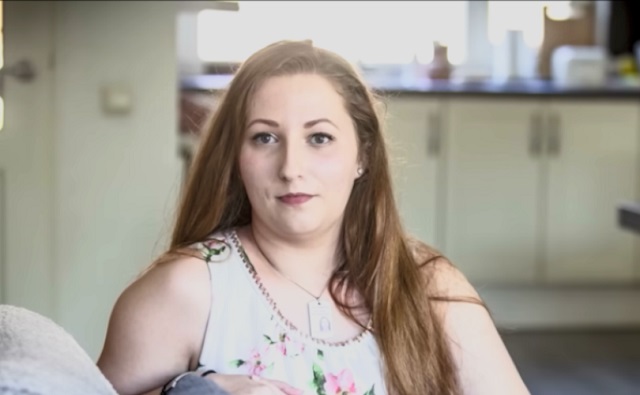
28-year-old Dutch woman Zoraya ter Beek (YouTube Screenshot)
From LifeSiteNews
28-year-old Zoraya ter Beek plans to die by assisted suicide over her struggles with depression and mental illness, a trend which is increasing in The Netherlands.
A 28-year-old autistic woman is scheduled to die by assisted suicide in May in The Netherlands after struggling with depression and mental illness, with her psychiatrist telling her that her condition is untreatable and will never improve.
Zoraya ter Beek, who does not suffer from any physical illness, has decided to end her life by assisted suicide after psychiatrists said they had exhausted any means of helping her deal with her mental illnesses, which includes borderline personality disorder, according to The Free Press.
Her struggles with mental illness have prevented her from being able to finish school or start a career.
READ: Canadian judge blocks imminent euthanasia death of 27-year-old autistic woman
In testimony to the nihilistic attitude adopted in the choice to end her own life on account of suffering, Ter Beek has decided that after she has been killed, her body will be cremated without a funeral and her ashes scattered in the woods.
Ter Beek’s choice to take her own life comes despite her admitted fear of death arising from the uncertainty of what happens after death.
“I’m a little afraid of dying, because it’s the ultimate unknown,” she said. “We don’t really know what’s next – or is there nothing? That’s the scary part.”
The diagnosis of autism and mental illness as “untreatable” and “unbearable” has become an increasing trend in The Netherlands, with a study published in June 2023 revealing 40 cases over a 10-year period from 2012 to 2021. In a third of those cases, those with autism or intellectual disabilities were told there was no hope of improving their lives, and so their condition was deemed “untreatable.”
READ: Autistic people in the Netherlands are being euthanized: report
Irene Tuffrey-Wijne, a palliative care physician at Britain’s Kingston University, who led the study which examined 900 cases, said, “There’s no doubt in my mind these people were suffering. But is society really OK with sending this message, that there’s no other way to help them and it’s just better to be dead?”
Tim Stainton, director of the Canadian Institute for Inclusion and Citizenship at the University of British Columbia, added, “Helping people with autism and intellectual disabilities to die is essentially eugenics.”
The scheduled killing of the 28-year-old autistic woman comes as The Netherlands continues to expand the scope of what legally qualifies for euthanasia, with a new law effective February 1 allowing the killing of terminally ill children aged 1 through 12 who are deemed to be “suffering hopelessly and unbearably.”
The law allows parents to decide to kill their child even if the child is unwilling or unable to consent.
-

 conflict2 days ago
conflict2 days ago‘It Makes No Sense’: Experts Puzzled By Biden Admin’s Claim That Rafah Invasion Wouldn’t Help Israel Defeat Hamas
-

 COVID-192 days ago
COVID-192 days agoThe New York Times Admits Injuries from COVID-19 Shots
-

 Energy2 days ago
Energy2 days agoFederal government continues to reject golden opportunities to export LNG
-

 Bruce Dowbiggin2 days ago
Bruce Dowbiggin2 days agoWhy Do The Same Few Always Get The Best Sports Scoops?
-

 Energy2 days ago
Energy2 days agoBuckle Up for Summer Blackouts: Wind Is Already Failing Texas in Spring
-
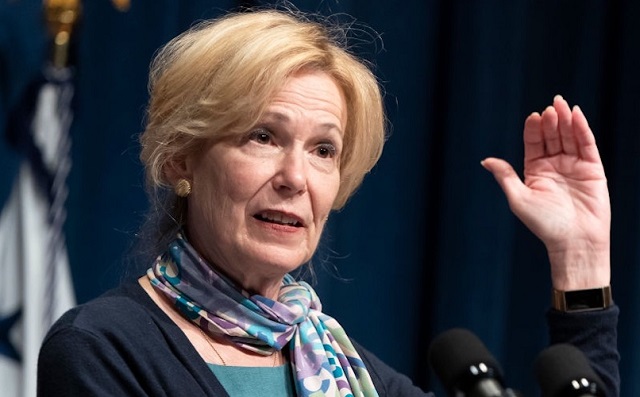
 COVID-192 days ago
COVID-192 days agoFormer COVID coordinator Deborah Birx now admits jabs could have injured ‘thousands’
-

 Opinion2 days ago
Opinion2 days agoCanada’s fertility, marriage rates plummet to record lows: report
-

 COVID-1916 hours ago
COVID-1916 hours agoMore victories for freedom as ArriveCAN charges dropped and fines reduced

